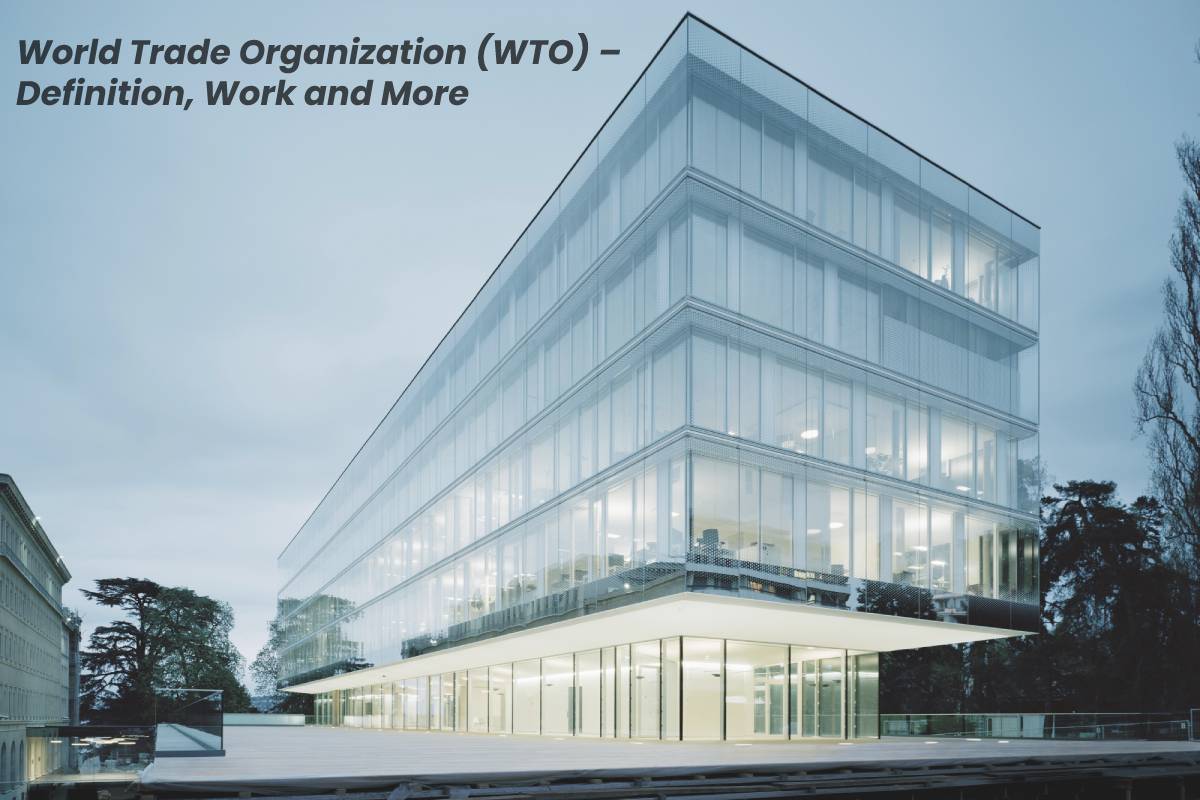Definition – World Trade Organization (WTO)
World Trade Organization (WTO) – The World Trade Organization (WTO) is the only global international organization that deals with trade rules between nations. At the center are the WTO agreements, negotiated and signed by most of the world’s trading nations and ratified by their parliaments. Although, The aim is to help producers of goods and services, exporters, and importers to carry out their activities.
Also Read: What is Trading – Definition, Types, Tools and More
About us
The overall objective of the WTO is to help its members use trade as a means to raise living standards, create jobs and improve people’s lives. The WTO manages the global system of trade rules and helps developing countries develop their trade capacity. It also provides a forum for its members to negotiate trade agreements and resolve the trade problems they face.
Improving people’s lives
Negotiating trade rules
Overseeing WTO agreements
Maintaining open trade
Settling disputes
World Trade Organization (WTO) – What do we do
Its member governments run the WTO. All critical decisions are made by all members, either by the ministers (who generally meet at least once every two years) or by their ambassadors or delegates (who meet regularly in Geneva).
Although its member states run the WTO, it could not function without its Secretariat coordinating activities. The Secretariat employs over 600 people, and its experts (lawyers, economists, statisticians, and communications experts) help WTO Members daily to ensure. And also, among other things, the smooth running of negotiations and the proper implementation of the business rules.
Trade negotiations
Implementation and monitoring
Dispute settlement
Building trade capacity
Outreach
World Trade Organization (WTO) – What we stand for
The WTO agreements are lengthy and complex because they are legal texts covering a wide range of activities. But certain simple, fundamental principles run throughout all of these documents and form the foundations of the multilateral trading system.
Non-discrimination
Opening trade
Predictability and transparency
Fair competition
Support for less developed countries
Protection of the environment
Inclusion
Partnerships
Digital trade
Overview of World Trade Organization (WTO)
The World Trade Organization — the WTO — is an international organization whose primary purpose is to open trade for the benefit of all.
The WTO provides a forum for negotiating agreements to reduce obstacles to international trade and ensure a level playing field for all, thus contributing to economic growth and development. The WTO also provides a legal and institutional framework for the implementation and monitoring of these agreements and settling disputes arising from their interpretation and application. The current body of trade agreements comprising the WTO consists of 16 different multilateral contracts (to which all WTO members are parties) and two various plurilateral agreements (only some WTO members are parties).
Main Activities
More specifically, the WTO’s main activities are:
— negotiating the reduction or elimination of obstacles to trade (import tariffs, other trade barriers) and agreeing on rules governing the conduct of international trade (e.g., antidumping, subsidies, product standards, etc.)
— administering and monitoring the application of the WTO’s agreed rules for trade in goods, trade in services, and trade-related intellectual property rights
— monitoring and reviewing the trade policies of our members, as well as ensuring transparency of regional and bilateral trade agreements
— settling disputes among our members regarding the interpretation and application of the agreements
— And also, building capacity of developing country government officials in international trade matters
— assisting the process of accession of some 30 countries who are not yet members of the organization
— conducting economic research and collecting and disseminating trade data in support of the WTO’s other main activities
— Although, explaining to and educating the public about the WTO, its mission, and its activities.
Also Read: What is the Operating System? – Definition, Types, and More

